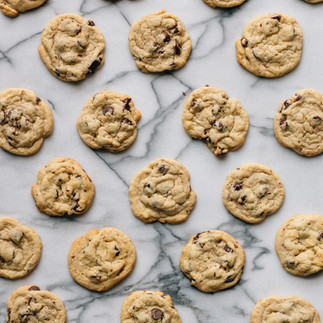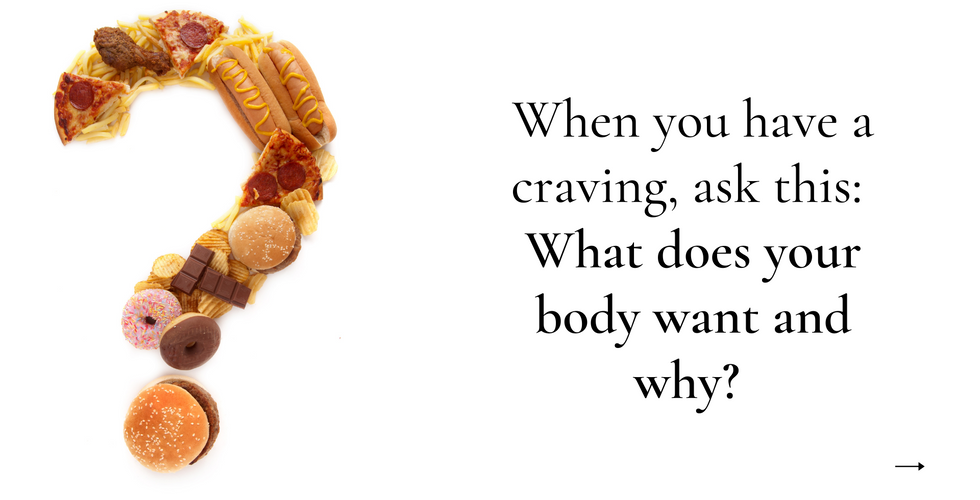What Are Cravings?
- Vicky Sham

- Jul 4, 2022
- 3 min read
Updated: Oct 19, 2022
When was the last time you had a craving? Where were you and what were you doing? How often do you have cravings? Do you know what causes them? If your cravings are to do with food, are you genuinely hungry or do your cravings mean something else? What do you usually do about your cravings? More importantly, what SHOULD you do about them?
Having cravings does not mean you are weak
Next time you find yourself giving in to your cravings and dig into whatever food or drink or undesirable behaviour, do not mistake this as weakness. There is so much going on between your mind and body. Take this as an excellent opportunity to understand these cues from your body and respond accordingly.
What is currently going on in your life? Pay a little attention to your routine, behaviour and mental state. Figure out what may be the underlying causes of your cravings. Cravings are important messages for your body to maintain balance. Whenever you have a craving, take a moment to ask yourself: What does your body want and why?
Here are a few possible causes of cravings. Once you know the underlying reasons for your cravings, you can figure out how to respond appropriately.
Emotions. Being dissatisfied with your relationships, exercise routine (too much or too little or the wrong type), work, even stress or boredom, can cause emotional eating. Whilst food is often a constructive part of our social life, we may sometimes use eating to substitute as entertainment or fill an emotional void.
Hydration . Dehydration makes us feel thirsty and makes us drink more. However, lack of water can sometimes be mistaken as hunger. When you get a craving, try to drink some water first. Try to maintain a well-balanced hydration, because (mysteriously) excess water can also cause cravings.
Imbalance. Diets that are extreme or too rich in sugar or highly processed food can cause imbalance. For example, having a diet too rich in sugar can cause cravings for meat. Having too much raw food may cause cravings for high temperature or deep fried foods. And vice versa, having too much dried food may cause cravings for fresh food.
Social & Cultural. Sometimes cravings can come from food that we have recently eaten, or food eaten during our childhood. Try to satisfy these cravings by opting for a healthier version of these foods.
Seasonal. Cravings can be seasonal. In the spring & summer, we crave greens, citrus and cool foods. During colder seasons, we crave soups, nuts and meat. Cravings can be associated with holidays and festivals.
Lack of nutrients. We may have the odd cravings if the body lacks certain nutrients. For example, inadequate minerals may cause cravings for salt. Lack of energy can trigger cravings for caffeine or sugar. Try to consume a variety of fresh and nutrient dense food on a regular basis.
Hormonal. When women experience menstruation, pregnancy, or menopause, fluctuating testosterone and oestrogen levels may cause unique cravings.
Self-sabotage. It can happen when we crave foods that throw us off, thus creating more cravings to balance ourselves. This may happen due to low blood sugar and related mood swings.
Whether you want to get rid of your cravings or leave them be, it is always interesting to explore the reasons and drivers behind your cravings. Your body, constitution, preferences and lifestyle are unique to you. There is no one way of fixing undesirable cravings. Once you successfully deconstruct your cravings and understand what they mean, it would be much easier to resolve them in a healthy and sustainable manner.
Have you figured out what causes your cravings? What do you want to do about them? If you'd like to get some help with your cravings, build some healthy habits towards a healthful routine, feel free to get in touch for a consultation.

















Comments